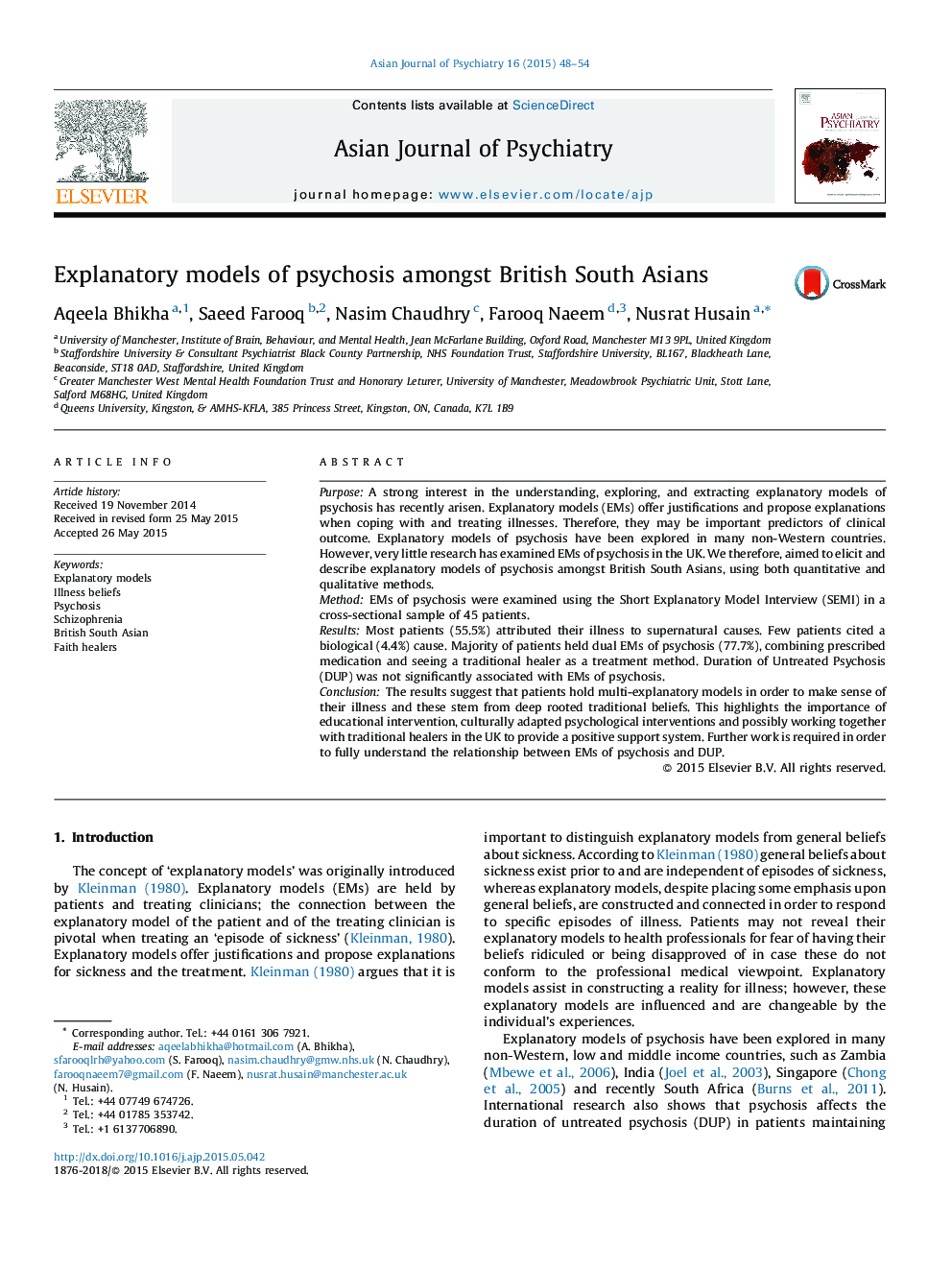| Article ID | Journal | Published Year | Pages | File Type |
|---|---|---|---|---|
| 315847 | Asian Journal of Psychiatry | 2015 | 7 Pages |
•British South Asian patients held multi-explanatory models about their psychotic illness.•Majority attributed their illness to a supernatural cause.•A dual-treatment model of taking prescribed medication and traditional healing was commonly used.•Explanatory models of illness impacted upon help-seeking behaviours and care pathways.•Educational intervention and working with traditional healers has important implications.
PurposeA strong interest in the understanding, exploring, and extracting explanatory models of psychosis has recently arisen. Explanatory models (EMs) offer justifications and propose explanations when coping with and treating illnesses. Therefore, they may be important predictors of clinical outcome. Explanatory models of psychosis have been explored in many non-Western countries. However, very little research has examined EMs of psychosis in the UK. We therefore, aimed to elicit and describe explanatory models of psychosis amongst British South Asians, using both quantitative and qualitative methods.MethodEMs of psychosis were examined using the Short Explanatory Model Interview (SEMI) in a cross-sectional sample of 45 patients.ResultsMost patients (55.5%) attributed their illness to supernatural causes. Few patients cited a biological (4.4%) cause. Majority of patients held dual EMs of psychosis (77.7%), combining prescribed medication and seeing a traditional healer as a treatment method. Duration of Untreated Psychosis (DUP) was not significantly associated with EMs of psychosis.ConclusionThe results suggest that patients hold multi-explanatory models in order to make sense of their illness and these stem from deep rooted traditional beliefs. This highlights the importance of educational intervention, culturally adapted psychological interventions and possibly working together with traditional healers in the UK to provide a positive support system. Further work is required in order to fully understand the relationship between EMs of psychosis and DUP.
